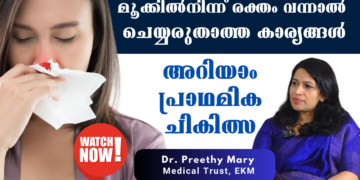Cigarette smoke contains a complex mixture of chemicals, many of which are harmful to the human body. When a person smokes a cigarette, the smoke is inhaled into the lungs, where it can have several detrimental effects:
- Irritation of Airways: The smoke irritates the lining of the respiratory tract, leading to inflammation. This irritation can cause the airways to constrict, making it harder to breathe.
- Damage to Lung Tissues: Cigarette smoke contains harmful substances such as tar and other carcinogens. Prolonged exposure to these substances can lead to damage and destruction of the lung tissues. This damage can result in chronic obstructive pulmonary disease (COPD), emphysema, and chronic bronchitis.
- Reduced Lung Function: Smoking can lead to a decrease in lung function over time. The harmful chemicals in cigarette smoke can damage the alveoli (small air sacs in the lungs), reducing their ability to exchange oxygen and carbon dioxide efficiently.
- Increased Mucus Production: Smoking can stimulate the production of mucus in the airways. Excessive mucus can clog the air passages, further contributing to difficulty breathing.
- Impaired Ciliary Function: The respiratory tract is lined with tiny hair-like structures called cilia, which help move mucus and debris out of the airways. Smoking can impair the function of cilia, leading to a buildup of mucus and pollutants in the lungs.
- Inflammation and Oxidative Stress: Cigarette smoke triggers inflammation in the lungs and generates oxidative stress. This can lead to the release of harmful substances and free radicals, causing further damage to lung tissues.
- Increased Risk of Cancer: Smoking is a major risk factor for lung cancer. The carcinogens in cigarette smoke can cause genetic mutations in lung cells, leading to the development of cancerous tumors.
It’s important to note that the damage caused by smoking is cumulative and often irreversible. Quitting smoking is the most effective way to prevent further harm and improve lung health. If you have concerns about the impact of smoking on your health, it’s advisable to consult with a healthcare professional for personalized advice and support in quitting.































Discussion about this post